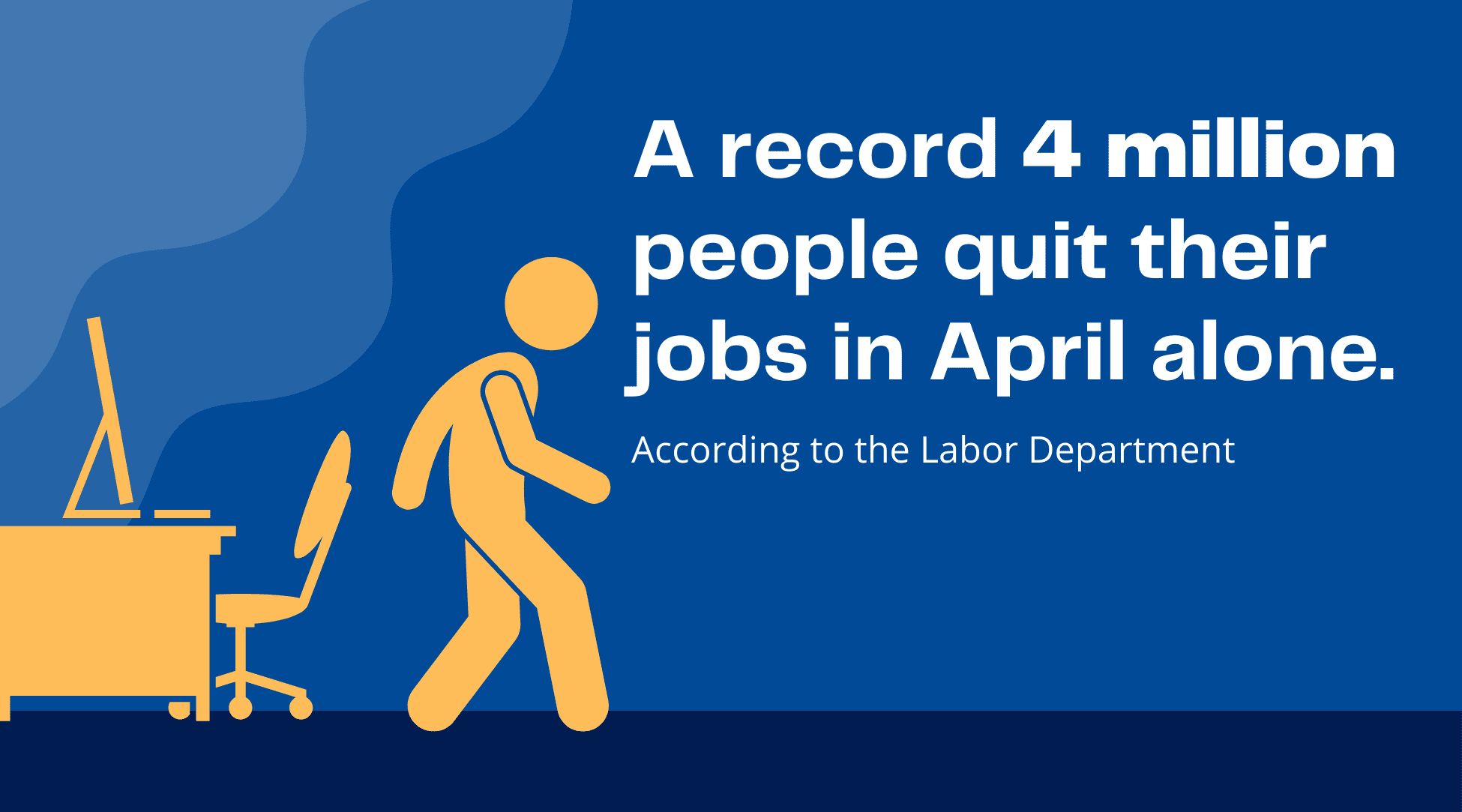
With record-high quit rates and a talent shortage, employers are struggling to find qualified employees. If you are an employer trying to hire in today’s tight labor market and are looking for tips to combat the “great resignation” at your organization, follow this advice.
1. Set your employees up to succeed
Creating an ‘open-door’ policy encourages an open flow of communication between employer and employee. Forming a collaborative and communicative work culture allows employees to feel comfortable to speak on any needs, questions, or concerns they may have. Communication is especially important during these uncertain times because employees may not be able to meet face-to-face to have a conversation due to remote or hybrid work models. Check in with your employees and make sure they know you are accessible as a manager, no matter what your work environment looks like right now. Empower employees to have a voice.
2. Celebrate your employees on their accomplishments
As an employee, it is exciting when you reach an accomplishment in your position. Often times you want to turn to someone to express your excitement. When this happens, as a leader, you should recognize their hard work and show your appreciation for them as an employee.
Here at JOHNLEONARD, when a Staffing Consultant helps a job seeker secure a job, they ring the office bell to celebrate their success and are congratulated by the whole office. Small acts like this are a great way to show your employees that they are valued team members and their work doesn’t go unnoticed.
3. Listen to employees that are leaving
When an employee does resign, take this opportunity to listen to their reasoning for leaving and get feedback for any changes that need to be made in your company. This will also give you the chance to thank your employee for all that they have done for you and to wish them well in their endeavors. Both positive and negative feedback will enable you to grow as a leader and help maintain a successful work environment. Having transparency with employees no matter the circumstance will only be beneficial for you and your organization.
4. Create motivation
For new employees you are onboarding, be clear with them about your shared mission and goals as a company. Define their responsibilities in the role and values and behaviors that define success for the team. Clarity is a game-changer and will allow your employees to know what you expect from them and what they can expect in their new position.
An important part of creating motivation is to not make your employees feel limited in their new role. Instead, express what opportunities they can be exposed to by working for your company., such as the opportunity for growth, one-on-one check-ins, employee rewards/perks, a respectful, honest, and supportive manager, recognition of their achievements, and more.

Looking to stay up-to-date on the current hiring trends? Subscribe to the JOHNLEONARD blog and we’ll keep you informed of the updates you need to know!
